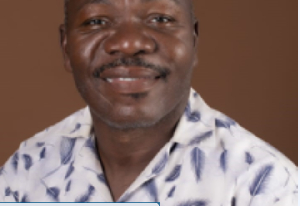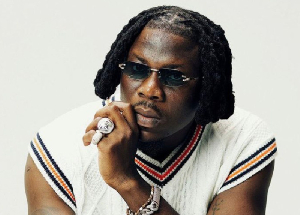...to Change how Presidents are Elected in Ghana?
Information reaching The Statesman indicates that the ruling National Democratic Congress (NDC) is planning to push through an amendment to the 1992 constitution which would make it mandatory for a Presidential Candidate to win at least 4 regions before he or she can elected to serve as President of the Republic of Ghana.
This proposed amendment will, however, be subject to being approved by Ghanaians in a referendum to be held before 2012 and in time to be implemented for the conduct of the 2012 general elections.
On the 3rd of March 2011 Ben Ephson, the Editor of the Daily Dispatch, who has come out publicly to back this proposed NDC-led amendment is to chair the thematic group deliberation on the Electoral Commission with issues inter alia “A Presidential Candidate must win the ballot in more than half the administrative regions to become President”. Ben Ephson has since been on air to suggest that the number of regions to win a Presidential election in Ghana may go down to four.
This proposed amendment in the way Ghanaians elect Presidents, should it be pushed through, will be quite unusual as Ghana happens to be a unitary state, one which is governed as one single unit in which the central government is supreme and any administrative divisions (sub-national units) exercise only powers that the central government chooses to delegate.
There is no Unitary State anywhere in the world where this is the sole method by which Presidents are elected. In countries around the world where the practice of electing a President based on this proposed amendment is present, weighted voting takes place.
Weighted voting systemsare voting systems based on the idea that not all voters are equal. Instead, it can be desirable to recognize differences by giving voters different amounts of say (weights) concerning the outcome of an election. This is in contrast to normal parliamentary procedure, which assumes that each member's vote carries equal weight. This type of voting system is used in everything from shareholder meetings, where votes are weighted by the number of shares that each shareholder owns, to the United States Electoral College. A cursory glance at the [2000] population figures of the Volta, Upper East and Upper West Regions would clearly show that they less in comparison to the population of, say, the Ashanti Region. Figures available from the 2000 population and housing census put the total population of Volta, Upper East and Upper West regions at 3,103,410 which is smaller by some 80,000 to the population of the Ashanti Region which stood at 3,187,607.
This will, therefore, imply that the Ashanti Region, since it has a higher population, should have a much greater say in who becomes President of this Country than voters from the Volta, Upper East and West Regions.
Should this NDC-led amendment be pushed through, Ghana would be heading towards becoming a Federal State where regions or other sub-national units will share sovereignty with the central government, and the regions comprising the federation will have an existence and power functions that cannot be unilaterally changed by the central government.
Unless Ghana is planning to adopt a Federal System or Prime Ministerial system of governance, then this surely is not the way to go. Ghana has conducted five successive elections using our current electoral system; and the system clearly isn’t broke, so we don’t fix it.
General News of Tuesday, 1 March 2011
Source: Statesman
















